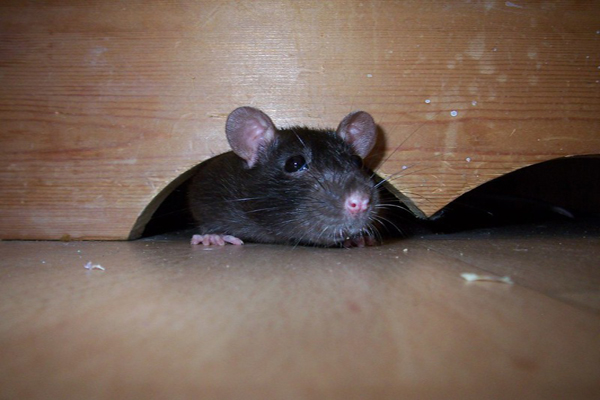Do you hear something scurrying around in your attic? If so, you may have a mouse problem! Mice can be a real nuisance, and they can also pose a health risk if they get into your home. In this blog post, we will explain what mice in the attic sound like, and we will also give you some tips to prevent mice from invading your attic.
What Does a Mouse in the Attic Sound Like?
Mice are small creatures, so they don’t make much commotion when they move around. However, their tiny feet can be heard as squeaky footsteps on wooden boards or insulation. You’ll also pick up rustling noise coming from the insulation as they build a nest. If you have mouse activity in your attic, it will sound like tiny footsteps above your head or scratching and squeaking sounds that can be heard through the walls of your home.
Different Sounds Mice Make
Mice in the attic can make a lot of different noises depending on what they are doing. These rodents make their presence known during the day and night, so you’ll be able to hear squeaking, scurrying noise around whether it’s light or dark outside.
These are some of the most common mice in attic sounds that you may hear:
1. Vocal Noises
Mice are very vocal animals, and they will make a variety of squeaks and chirping to communicate with one another. The sound is similar to what you would hear from a bird or rodent. They also make a high-pitched squeak when they are scared or in pain.
1a. High-pitched squeak
This is a common noise that mice make when they are scared or in pain. They also use this sound to communicate with each other.
1b. Clicks and chirps
Mice communicate by making a variety of different clicking and chirping. These sounds are often used to show excitement or aggression, but they can also be used for communication between two mice who are close together in proximity (such as when mating).
1c. Chattering teeth
Mice will chatter their teeth when they are feeling threatened or nervous. The sound is made by the rodent rubbing its incisors together rapidly.
1d. Screeching and fighting noises
If you have more than one mouse in your attic, you may hear them fighting each other. This usually happens when there is a limited amount of food or space available. The fighting can be loud and will often involve screeching or screaming.
2. Scratching Sounds
This sound is often heard when the mouse is trying to get through something or climb up a wall or ceiling. It can also be caused by them chewing on wood, drywall, electrical wires, plastic pipes, etc. You can also hear this when they made nests with insulation.
This sound is one of the most common sounds that people associate with mice, and it can be heard throughout the day and night.
3. Gnawing or Chewing
Mouse’s incisors never stop growing, so they need to constantly gnaw on things to keep them sharp. This is why you’ll often hear mice in your attic chew on wood, wires, and other objects. The noise this makes is a combination of chewing and grinding. And when a mouse infestation is present, this will be the most common noise you hear.
This noise is heard mostly at night when the mouse is foraging for scraps. As we said before, this is one of the main ways that mice find their food.
4. Scurrying Around on Wood and Insulation
One of the most common sounds that people hear from mice in attics is scurrying on wood and insulation. This can be heard throughout the day and night, depending on when they are active. This sound is caused by the mouse’s tiny feet and their bodies brushing against the surface.
It’s also a sign of an infestation if you start hearing noises like this because they will use it as nesting materials.
Other Signs That You Have Mice in Your Attic
There are many signs that you may have a mouse problem. If there’s any evidence of droppings or urine anywhere in your home, it could be from rodents. Here are other signs of rodent infestation:
- gnaw marks on furniture, food packages and electrical wiring.
- nesting sites made from shredded paper or fabric that have been chewed up by mice to make their bedding material more comfortable to sleep in; these are usually found near entry points for rodents like gaps under doors and windowsills where there’s easy access
- droppings
- smell of rodent urine
- holes in floors and walls
- tracks and runways on the surface of objects or walls
Prevent Mice in the Attic
You cannot immediately know if there are mice in your attic until you start hearing sounds and see other warning signs. But there are ways to prevent these rodents from living in your home so that they don’t cause any damage or health problems for yourself, family members, pets, and anyone else who lives with them!
You can take some preventative steps to make it harder for them to get in. These are:
Block Off Entry Points
Mice can squeeze through tiny holes to get into your attic, so it’s important that you seal off any potential entrances. The most common areas for this are around pipes and wires where mice climb and enter the house from outside or through gaps under doors and windowsills; use caulk to fill these cracks up so there’s no way for rodents of any size to get through them.
Remove Food Sources
Another way to prevent mice from coming into your attic is by removing food sources. You can do this by keeping all stored food items sealed tightly and away from any potential accesses; this means not leaving them out on counters or tables where they might be accessible! If possible, keep these areas clean and free of any clutter so that there is nothing for the mice to eat.
Maintain a Good Hygiene Habit
Another way to stop rodents from entering your home is by having good hygiene habits. This means not leaving foods or water out in uncleaned areas and making sure all trash cans have tight-fitting lids. If you have any pet feed bowls, make sure they are cleaned regularly and placed away from any potential access for mice like gaps under doors or windowsills.
Keep Your Attic Clean
It’s also important to keep your attic clean so that there aren’t any places where mice can hide. This means not leaving anything on the floor, such as old boxes or furniture, and not putting any edibles out in this area either. You can use steel wool around holes where wires or pipes enter the house from outside. If you have insulation in your attic, make sure to keep it clean and free from any droppings or urine.
Keep Your Garage Clean
Another way of preventing critters from entering your home is to keep your garage clean. This means ensuring that there are no edible sources for them and that all areas are free of clutter. You can use the same methods as you would for your attic – keeping it clean and sealed off from potential access areas.
Install a Metal Mesh Over Your Vents
One way to keep the mice out is to install a metal mesh over your vents. This will stop them from getting in and also prevent other pests like bugs or wasps from getting in as well. You can buy these at most hardware stores and they are an easy way to protect your home.
Put Up Screens on Your Windows and Doors with Tight-Fitting Frames.
You can also use steel wool in the gaps between baseboards and walls, as well as around doors or windows that don’t close tightly enough; these materials are too hard for mice teeth to chew on so they cannot enter through an area like this if you’ve put steel wool in it.
Rats vs. Mice
Rats and mice might look very similar to the average homeowner but they are two very different species. So, what’s the difference between a rat and a mouse you ask? Well, rats are usually bigger than mice, and they have long tails. Mice have small ears, and their tails are shorter than their bodies. Rats live in colonies, while mice are more solitary creatures. Both rats and mice will eat your food, and both can contaminate your food with their feces.
The most common house mouse that is found in the US is the Deer Mouse, the White-footed Mouse, and the Field Mouse. So, be careful if you see a small brown mouse in your house, it could be either one!
Mice are more common than rats in houses, but both rodents can cause damage and spread disease. If you think you have either of these pests in your home, it’s important to contact a pest control professional to get rid of them as soon as possible.
Professional Rodent Control
If there is a full-blown infestation of mice in your attic, it’s important to take action and get rid of them as soon as possible. Mice can cause a lot of damage and health problems if left untreated.
AAAC Wildlife Removal specializes in removing mice from attics and other areas of your home. We have the expertise to get rid of other rodents including rats, squirrels, raccoons, bats, birds & more!
Originally published on https://aaacwildliferemoval.com/blog/mice/mice-in-the-attic-sounds/














